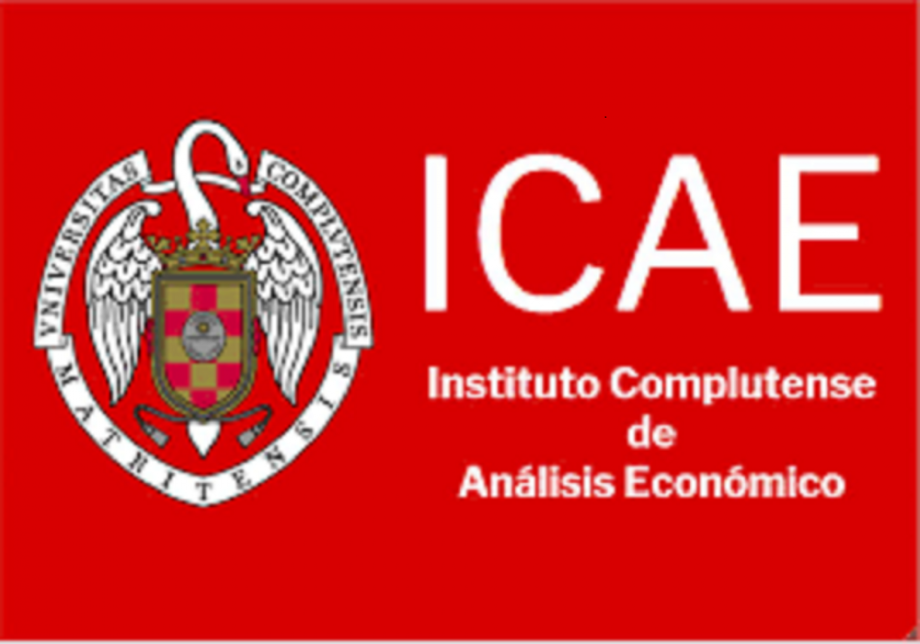Economic Analysis Seminar June 9, Patrizia Perez Asurmendi (ICAE-UCM)
-
Inicio: Miércoles, 09 junio 13:00
Fin: Miércoles, 09 junio 14:30 - UCM Facultad de Ciencias Económicas y Empresariales, Campus de Somosaguas, Pozuelo de Alarcón, España

Dept. Economic Analysis
Research Seminars
Dear all,The following virtual seminars will take place next week.Department of Economic Analysis & ICAE Research Seminars:
WEDNESDAY, June 9th, 2021, 13:00 h
Patrizia Pérez Asurmendi (ICAE-UCM)
Title: The Choquet integral in the construction of composite indices: The case of the Sustainable Society Index
Abstract: In economic frameworks, composite indicators are a powerful tool to summarize the information provided by simple indicators in a unique value. Many of them are designed by aggregating simple indicators through arithmetic and geometric means (sometimes the weighted ones) given their simplicity and their properties. But using these aggregation functions is subject to criticisms in the literature. In the case of the arithmetic mean, the main one focuses on the compensability that it allows among the different simple indicators that aggregates. To solve this weakness, the use of the geometric mean is highly recommended given that the compensability among the different simple indicators is lower than in the former. Nevertheless, the geometric mean exhibits also a relevant drawback, namely, it is not invariant to changes in the scale. To be more concrete, it is not stable when linear transformations are performed on the scale used to represent the values of the indicators. Accordingly, the final ranking depends dramatically on the selected scale of the simple indicators. Moreover, in both cases, the possible and common interactions among simple indicators are not considered in the composite indicator. To overcome these issues, we propose a model based on the Choquet integral. On the one hand, our proposal allows to consider the usual interactions among the simple indicators in the composite indicator when necessary. On the other hand, it allows to control the degree of compensability among simple indicators. Possible applications of our model are huge and to illustrate them, we also provide the implementation of our model in the Sustainable Society Index. Such composite indicator measures the level of sustainability of 154 countries taken into account the three dimensions of sustainability, namely, the Human Wellbeing, the Environmental Wellbeing, and the Economic Wellbeing dimension. Its complexity allows us to show the convenience of using our model in the construction of composite indicators.
You can join the seminar through Google Hangout Meets at the following link:@ucm accounts are granted immediate access to the webinar. External accounts require explicit approval by the moderators.
You can find the recording of the talk as well as previous sessions, papers, and the schedule of upcoming seminars at the seminar’s webpage
Hope to see you all there.Best,Jimenez-Martin, Juan-ÁngelRodríguez Álvarez, CarmeloRodríguez Hernández, Juan GabrielSartarelli, Marcello
Dept. Economic Analysis
Research Seminars
Dear all,Next week, we'll have a double header with an internal seminar joint with the Taller de Avances (Programa Doctorado Facultad CCEE) on TUESDAY and a regular seminar on WEDNESDAY.Department of Economic Analysis & ICAE Internal Seminar & Taller Avances (Programa Doctorado Facultad CCEE):
TUESDAY, May 25th, 2021
Conrado Brum (Banco Central Uruguay & PhD UCM)
Title: : An indicator of monetary bias for emerging and dollarized economies: The case of Uruguay (joint with A García-Hiernaux ICAE UCM)
Abstract: The instability of the relationships between interest rates, amount of money, and exchange rate, and the transmission problems between different interest rates hinder the measurement of monetary policy through a single variable. This difficulty is particularly relevant in emerging and dollarized economies. This paper proposes a multivariate indicator of monetary bias for these economies in which the monetary and financial variables are considered according to the impact they have on inflation in each period. We analyze the case of Uruguay and use a Factor Augmented Vector AutoRegressive Moving Average model with eXogenous variables (FAVARMAX) to estimate these effects. Using the evolution of the indicator proposed, called the Monetary Conditions Index (MCI), we characterize the policy adopted by the Central Bank of Uruguay between 2010-2019, a period of inflation targeting.
Department of Economic Analysis & ICAE Research Seminars:
WEDNESDAY, May 26 th, 2021, 13:00 h
Lidia Sanchis-Marco (Univ Castilla-La Mancha)
Title: Spillover effects between commodity and stock markets: A SDSES approach.
Abstract: In this paper, we developed a state-dependent sensitivity expected shortfall (SDSES) approach using expectiles. This model enabled us to quantify the direction, size, and persistence of risk spillovers among the US and emerging market stock indices and different individual commodities as a function of the state of financial markets (tranquil, normal, and volatile). We obtained high and more significant spillovers and financialization process evidence in the volatile state after Lehman Brothers bankruptcy and market stock indices appeared to play a major role in the transmission of shocks to other markets.
You can join both seminars through Google Hangout Meets at the following link:@ucm accounts are granted immediate access to the webinar. External accounts require explicit approval by the moderators.
You can find the recording of the talk as well as previous sessions, papers, and the schedule of upcoming seminars at the seminar’s webpage
Hope to see you all there.Best,Jimenez-Martin, Juan-ÁngelRodríguez Álvarez, CarmeloRodríguez Hernández, Juan GabrielSartarelli, Marcello-
